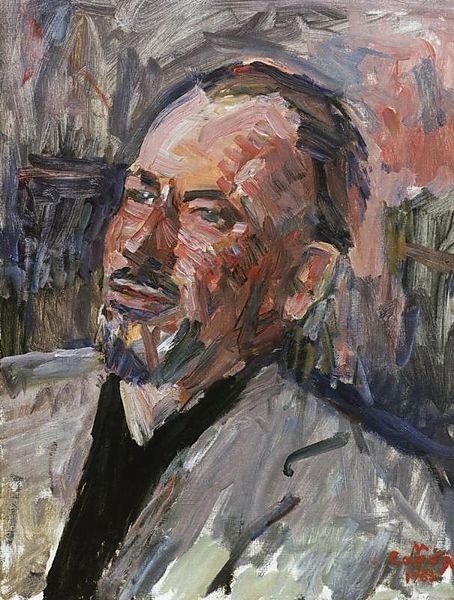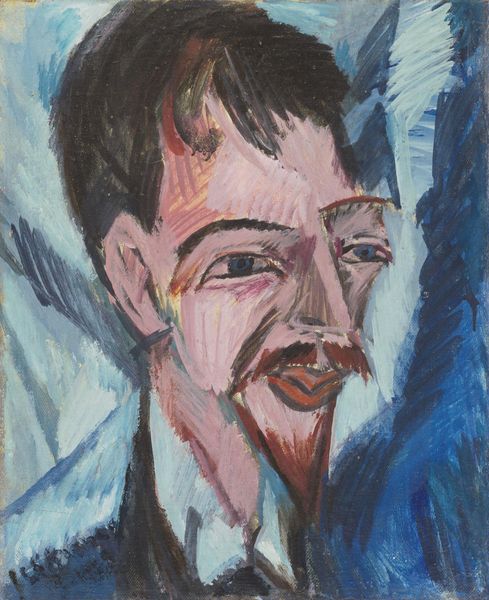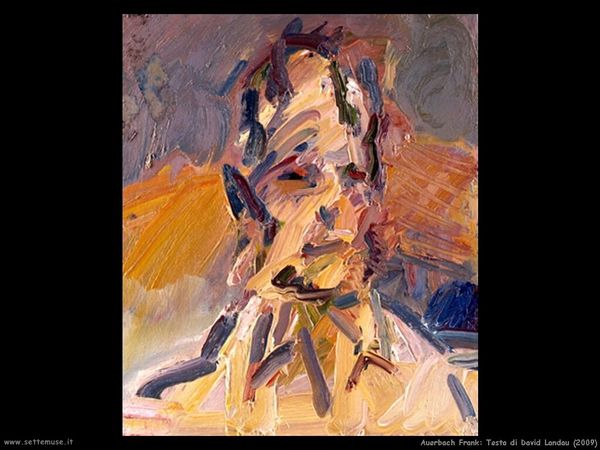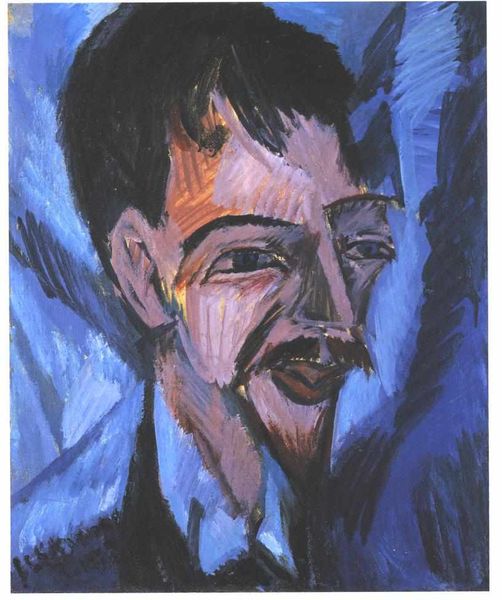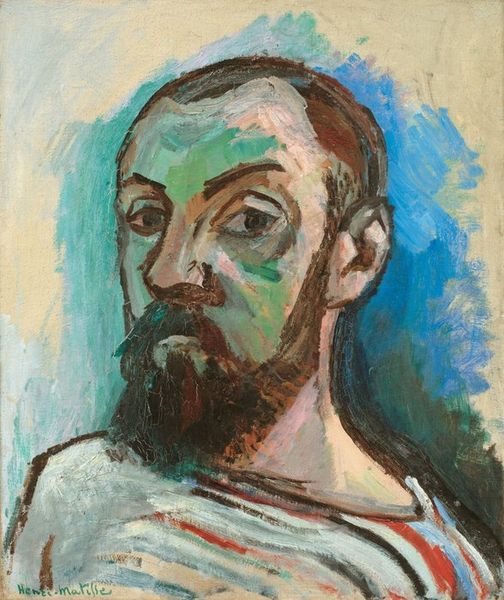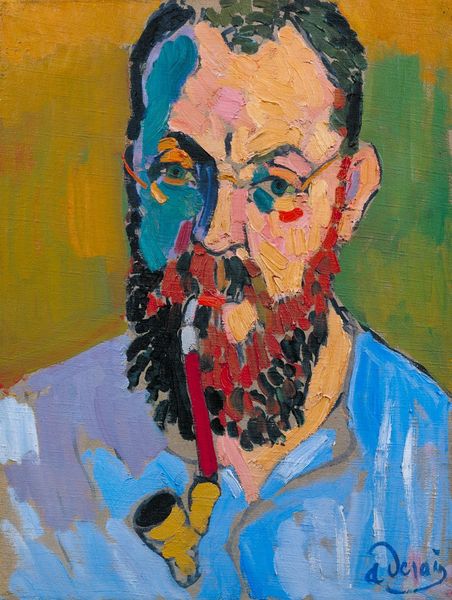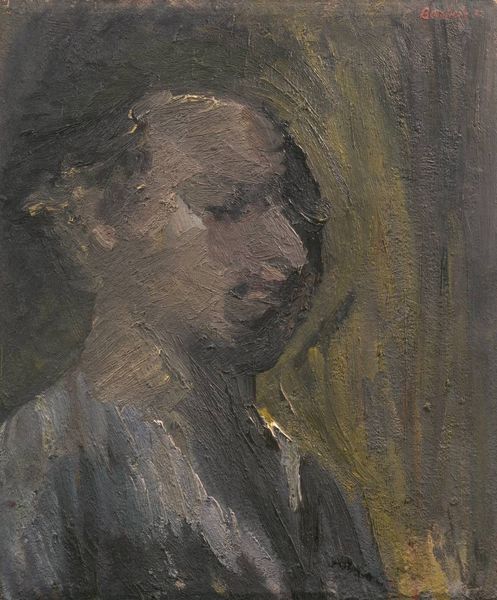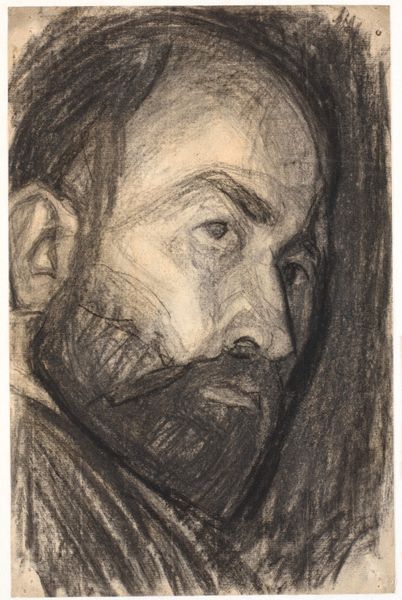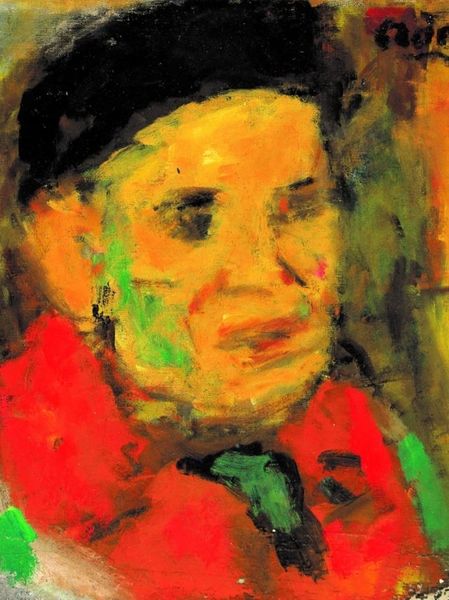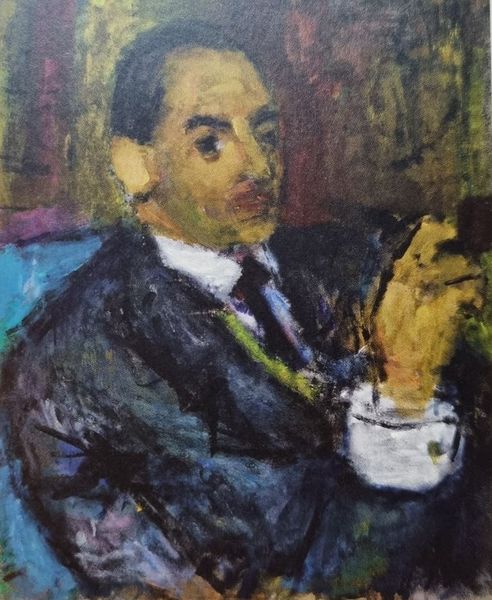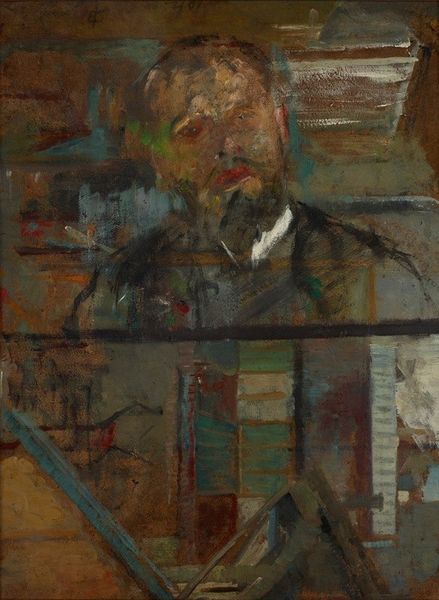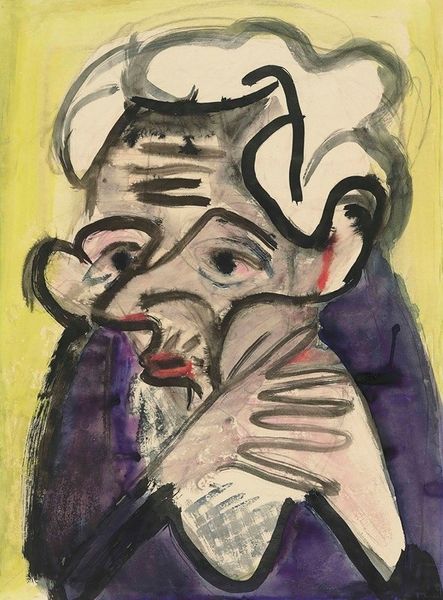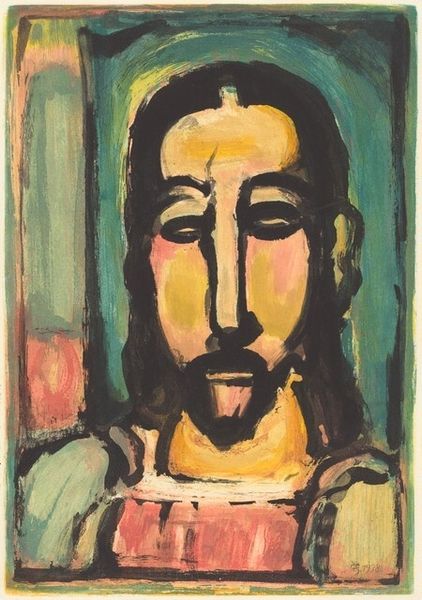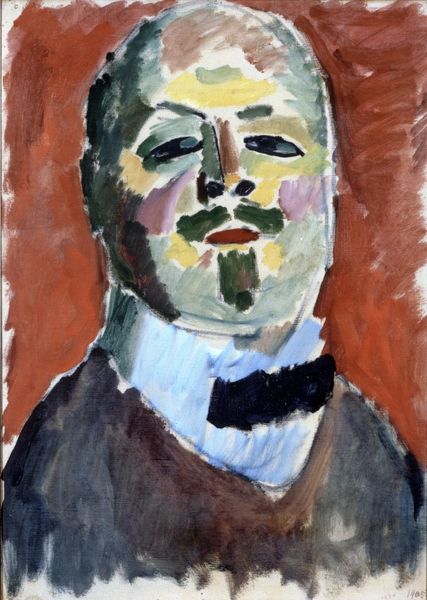
painting, oil-paint
#
portrait
#
painting
#
oil-paint
#
figuration
#
oil painting
#
expressionism
#
modernism
Copyright: Bela Czobel,Fair Use
Curator: Bela Czobel's striking oil painting, "Czobel Deak Denes," is a portrait brimming with psychological depth. Editor: It feels... dreamlike, doesn't it? Almost unsettlingly intimate. The muted colors and the subject's closed eyes give off a strong sense of interiority, like we're peering into a private moment. Curator: I agree. Czobel often worked with a raw, expressive brushstroke. The strokes of vibrant color shaping the figure almost feel like whispers of inner thoughts, echoing the subject's emotions and the turbulent early 20th-century modernism in Hungary. Editor: Yes, and think about portraiture traditionally--it's about status, presentation. Here, it feels almost subversive. The rough, almost unfinished quality and the absence of clear social signifiers challenges conventional power dynamics inherent in the genre, highlighting vulnerability instead. Is the figure resting or unwell? Curator: Perhaps both. It reflects a certain post-war unease, I suspect. Many artists then were wrestling with portraying not just outward appearances, but inner states as a means of showing their raw response to an unsettling society. This canvas then shows its historical environment, offering commentary. It’s not just paint; it is evidence of society itself, isn't it? Editor: Precisely! Also, the composition focuses our gaze entirely on the face, demanding introspection. There is no real environment—instead a raw look into another person who we realize is likely contending with some of the same experiences that plague our contemporary existence. Curator: Ultimately, Czobel achieves more than a likeness. The artwork is instead the physical evidence of human experiences. Editor: A vulnerable look inside--that speaks volumes, I think, about the state of things both then, and now.
Comments
No comments
Be the first to comment and join the conversation on the ultimate creative platform.
